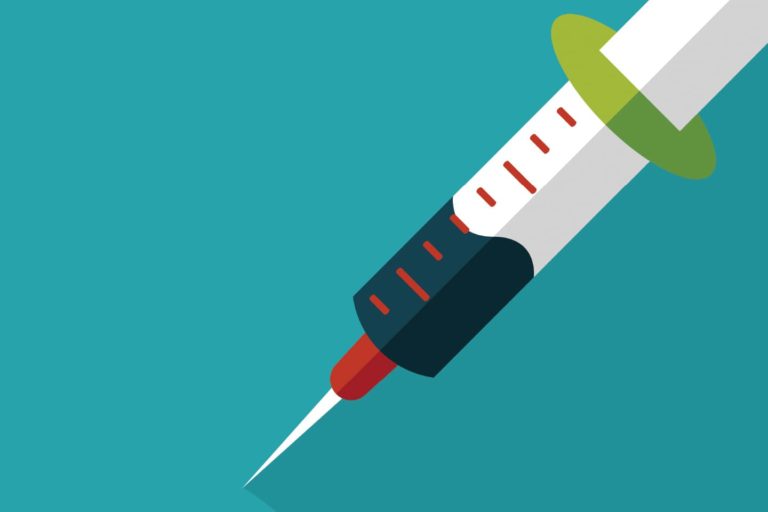For Her
Healthy Bones
Don’t let your bones get brittle. Check out these tips to keep them healthy and strong.
Did you know that as many as half of all women over 50 will fracture a bone at some point due to osteoporosis? Here are a few of The Arthritis Foundation’s simple steps to avoid becoming a part of the statistic.
- Catch some rays. Vitamin D is needed to absorb calcium for healthy bones, and when your skin is exposed to the sun, vitamin D is created. As little as five to 30 minutes in the sun a few times per week could be all it takes to reap the benefits. Just remember to always wear sunscreen!

- Eat bone-healthy foods. Fuel your bones with the nutrients they need. Low-fat dairy products will provide you with calcium and vitamin D. Other bone-healthy nutrients such as vitamin K can be found in greens like kale, broccoli, and spinach, and vitamin C is abundant in red and green bell peppers and many fruits.
- Review your medications. Be aware of corticosteroids such as prednisone, which is prescribed for inflammatory forms of arthritis. These medicines weaken bones by decreasing the amount of calcium absorbed by the intestines and increasing the amount excreted by the kidneys.
Source: The Arthritis Foundation
Health Benefits of Tai Chi
This low-impact exercise is good for the body and soul.
Tai chi is meditation in motion, but this gentle, Zen exercise does more than just relax you. While it won’t leave you breathless, it addresses important fitness aspects such as muscle strength, flexibility, balance, and even aerobic conditioning in both men and women. Upper- and lower-body strength and flexibility can be improved through tai chi, as can balance – the result of which is a reduced chance of falls, which are more likely as you get older. For those who suffer from a chronic illness, tai chi in conjunction with primary medical treatments has been shown to improve patients’ function and overall quality of life.
Source: Harvard Health Publications


For Him
Not Just for Women
Men should be screened for osteoporosis too.
Did you know that according to research, millions of men are at risk for osteoporosis? Because it’s more common in women, females tend to get routinely screened for bone loss, whereas men are less likely to. The result is that most men don’t receive treatment or take the necessary steps to protect their bones. In the United States, around 1.5 million men over age 65 have osteoporosis, and another 3.5 million are at risk. To ensure your bones are in good health, men ages 50 and above should receive yearly screenings for risk factors associated with osteoporosis.


By the age of 70, it is recommended that all men begin routine bone density screenings. With regular screenings, you can detect bone loss so that treatment can begin to preserve bone strength.
Source: HealthDay
Biceps and Your Health
Could bigger muscles mean a longer life?
Researchers from the UCLA School of Medicine have found that cardiovascular disease patients with high muscle mass and low fat mass have a lower mortality risk. The findings highlight the importance of maintaining muscle mass, as opposed to focusing solely on weight loss, in order to prolong life. According to the researchers, muscles promote better insulin function, which might play a role in slowing the development of heart trouble. For a healthy lifestyle change, the study’s authors suggest that individuals participate in resistance exercises rather than placing the main focus on monitoring weight loss.


Focus on building muscle throughout your entire body, resulting in an overall leaner body composition.
Source: UCLA Newsroom and Men’s Health
For the Whole Family
Vaccines After Childhood
Is it time for a shot?
You got vaccinated for Hepatitis B, measles, and more when you were a child, but do you know what vaccines you still might need? Vaccinations can be vital well past your pediatrician-going years, and the Centers for Disease Control and Prevention describes which ones are important for all adults.
- Seasonal Flu Vaccine
This vaccine needs to be received by everyone, once per year. If you have a chronic condition, are pregnant, or are older, it’s even more essential that you don’t forget your annual flu shot. - Td or Tdap Vaccine
You only need the Tdap vaccine once, if you didn’t receive it as an adolescent, to protect against whooping cough. However, pregnant women need it during each pregnancy, preferably between week 27 and 36. A Td booster shot should be received every 10 years to prevent against tetanus (lockjaw).


If you’re 60 or older, there are two additional vaccines you should get. They are:
- Pneumococcal Vaccines
These vaccines protect against pneumococcal disease, including infections in the lungs and blood stream. - Zoster Vaccine
This vaccine protects against shingles.
Source: Centers for Disease Control and Prevention
Get Revved Up!
Learn what natural sources can give you an energy kick
Cutting back on coffee can be easy if you know the right things to eat and drink in its place. Steer clear of quick fixes like sugar and caffeine, which will leave you crashing soon after. Instead, try this combo:
- Drink fresh orange juice. All the vitamin C in OJ helps produce carnitine, a molecule that helps your body burn fat for energy. Add in more foods that are packed with vitamin C, such as bell peppers, strawberries, and kiwis for an extra boost.
- Eat plenty of iron. Foods packed with iron, like steak, spinach, and soybeans will help perk you up. The iron helps to transport oxygen throughout your body via red blood cells. If you don’t get enough iron, your metabolic rate and energy levels will crash.
Source: Prevention


For Mom
Set the Standards
How to set limits with your adolescent to avoid terrible teens.
Teen years can be challenging, both for parents and their children. Smooth waters are the goal during adolescence, as is making sure your teen knows the consequences of their behavior. To ease the process, the Mayo Clinic offers advice on ways to set reasonable limits and communicate them clearly to your child.
- Avoid ultimatums, which can be construed as a challenge.
- Keep rules clear, short, and to the point.


- Say it in ink. Put pen to paper so rules can always be referred back to.
- Help them understand. Fully communicate your decisions so that you and your teen are on the same page.
- Be realistic when setting rules. Strive to set guidelines you know they can follow.
- Let rules evolve. At first, your teen may lack the responsibility for certain privileges. But as they get older, be more flexible with your restrictions.
- Collaborate with others. Ask other parents and even your teen what they think is a reasonable set of rules. Then work from there to finalize the limits and boundaries.
Source: The Mayo Clinic
Bedtime Blues
How to simplify bedtime.
Babies, toddlers, and older children can benefit from routine bedtime habits. One of the most coveted routines by parents and physicians is called the 4 B’s of Bedtime. They include:
- Bathing
A warm bath is the perfect way to wind down. Separate eating time from bedtime by following dinner with a soothing bath. - Brushing
Make a habit of brushing your child’s teeth or gums each night, after their last feeding and just before bedtime. - Books
Since teeth have been brushed, food and drinks aren’t a recommended source of comfort for winding down your child. Instead, curling up with your child and reading a book is the best way to wrap up the day and signal that it’s time to sleep. - Bedtime
Once this routine is implemented, your child should be well on their way to falling asleep independently.
Source: American Academy of Pediatrics



